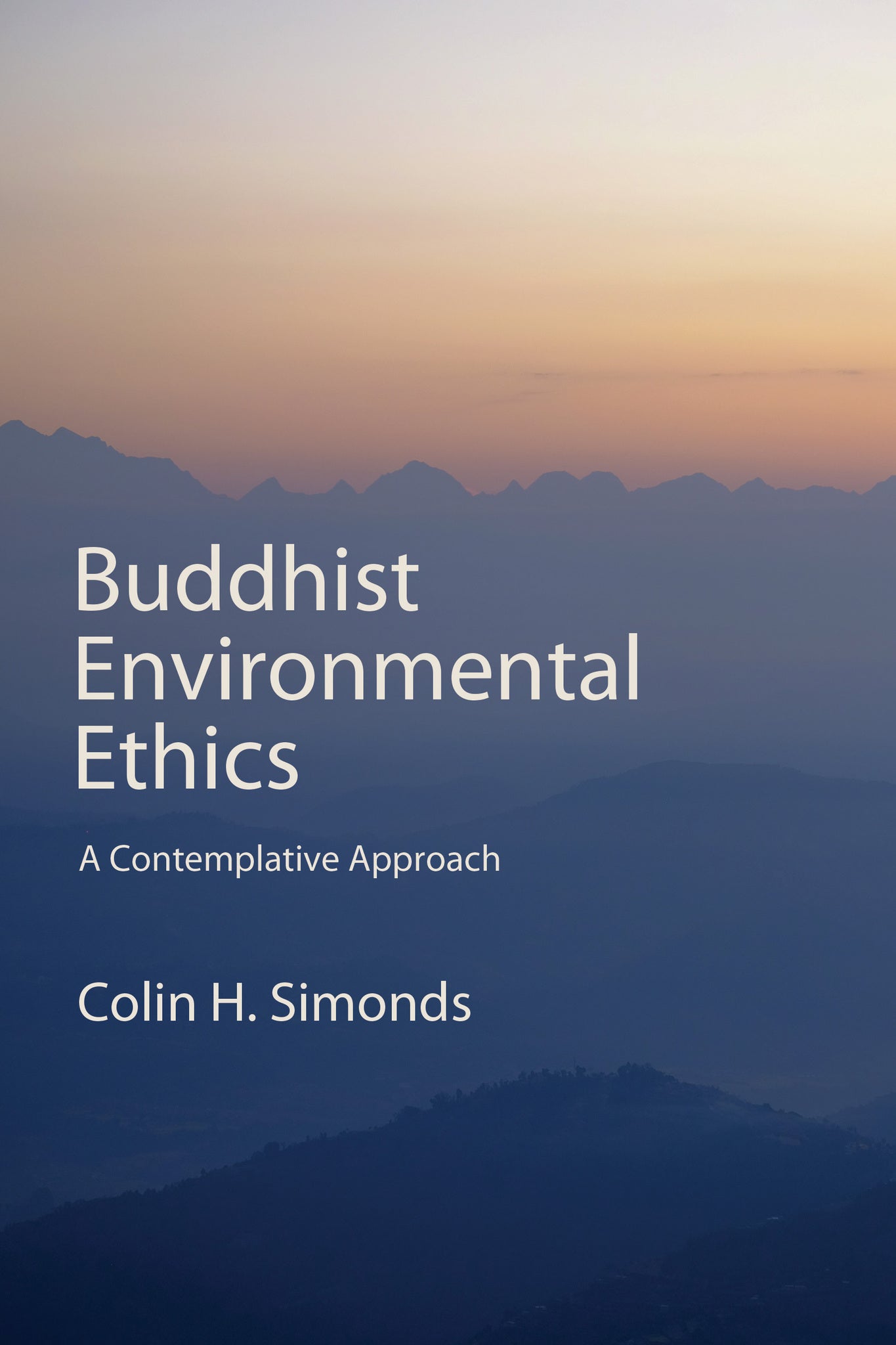We're sorry. An error has occurred
Please cancel or retry.
Buddhist Environmental Ethics

Some error occured while loading the Quick View. Please close the Quick View and try reloading the page.
- Format:
-
01 December 2025

Brings Tibetan Buddhist philosophy, contemplative practice, and contemporary environmental ethics together to present a novel way of approaching the pressing issues facing our more-than-human world.
In Buddhist Environmental Ethics, Colin H. Simonds presents a compelling case for using a contemplative register to approach some of our most pressing issues surrounding climate change, ecological collapse, and the exploitation of nonhuman animals. Simonds develops an emerging theory of Buddhist ethics—moral phenomenology—by engaging it with the Tibetan framework of view, meditation, action and providing a practical means by which individuals can ethically develop through contemplative practice. He then applies this theory and practical framework to the ethical and material problems facing the more-than-human world to show how a Tibetan Buddhist response to these issues offers a cogent, adaptable way to address environmental problems. In doing so, Buddhist Environmental Ethics forwards the first book-length constructive argument for an eco-Buddhist ethic in over a decade, articulates the first environmental ethic based on Tibetan Buddhist sources, and offers a timely framework for how we can experience the more-than-human world anew through contemplative practice.


"Well-researched and accessibly written, this book applies cutting-edge theory in Buddhist ethics to the crucial issue of the environment. Given the urgency of the climate crisis and the influence of Buddhism globally, its unique effort to describe a praxis or applied theory is highly important and timely. Simonds builds on previous work in Buddhist ethics by incorporating Tibetan Buddhist categories and frameworks to form a promising environmental ethic." — Barbra Clayton, Mount Allison University



